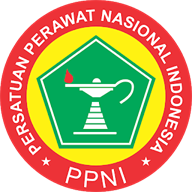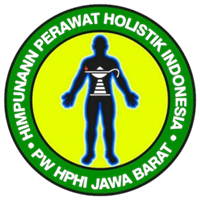The Effect of Health Coaching on the Community's Availability to Vaccinate
DOI:
https://doi.org/10.52221/jvnus.v3i1.152Keywords:
Covid-19, Vaccines, Health Coaching, AttitudeAbstract
Background: The number of negative issues regarding COVID-19 affects the public's perception of not participating in the COVID-19 vaccination. Based on a brief interview conducted by the researcher with 20 people in the Matangnga Health Center working area regarding the implementation of vaccination, 17 people expressed their doubts and were not willing to vaccinate. Because in this study, what needs to be changed is the public's perception of the COVID-19 vaccination, the health education method that will be used is the health coaching method. Objective: To determine the effect of providing health coaching on people's willingness to vaccinate in the work area of the Matangnga Health Center, Polewali Mandar Regency. Methods: The research design used was experimental research with a one-group pretest-posttest research design. Population In the study, namely all people over the age of 18 years, amounting to 3,444 people with a sample of 20 respondents, Sampling was done using the multistage sampling technique. The data collection tool used in this study was a questionnaire consisting of 17 statement items. Results: The normality test of the data using the Saphiro Wilk test showed that the data was normally distributed, and then the data was analyzed using the paired t test with the results of the p value of 0.000 <0.05. Conclusion: The results of the analysis of community attitudes towards the implementation of vaccination before and after the provision of health coaching showed that there was an effect of providing health coaching on the community's willingness to vaccinate in the work area of the Matangnga Health Center, Polewali Mandar Regency. Suggestion: It is hoped that this health coaching intervention can be developed further and can be used as a method for providing health education.
Downloads
References
Amalia, I. (2020). Manifestasi Klinis COVID-19 pada Kulit. Cermin Dunia Kedokteran, 47(9), 659–662.
Azwar, S. (2013). Sikap manusia: teori dan pengukurannya. Pustaka Pelajar.
Bennett, H. D., Coleman, E. A., Parry, C., Bodenheimer, T., & Chen, E. H. (2010). Health coaching for patients with chronic illness. New England Journal of Medicine, 17(5), 24–29. https://doi.org/10.1056/NEJM19751 0092931526
Bodenheimer, T. (2016). Health coaching: Help Patients Take Charge of Their Health. Home Healthcare Nurse, 32(7), 438–439. https://doi.org/10.1097/NHH.000000 0000000103
Conn, S., & Curtain, S. (2019). Health coaching as a lifestyle medicine process in primary care. Australian Journal of General Practice, 48(10), 677–680. https://doi.org/10.31128/ajgp-07-19- 4984
Effendy, F F., 2016, ‘Pengaruh health Coaching dengan pendekatan health belief modelterhadap perilaku compliance dan kestabilan tekanan darah penderita hipertensi’, Tesis, Universitas Airlangga, Surabaya
Guide, Q. S. (n.d.). Health Coaching. Goldman, M. L., Ghorob, A., Hessler, D.,Yamamoto, R., Thom, D. H., & Bodenheimer, T. (2015). Are low- income peer health coaches able to master and utilize evidence-based health coaching? Annals of Family Medicine, 13, S36–S41. https://doi.org/10.1370/afm.1756
Kivela, K., Elo, S., Kyngas, H., & Kaariainen, M. (2014). Patient Education and Counseling The effects of health coaching on adult patients with chronic diseases : A systematic review, 97, 147–157. https://doi.org/10.1016/j.pec.2014.07.026
Kemenkes. (2021). FAQ seputar pelaksanaan Vaksinasi Covid19.
Kompas. 2020. “Keraguan Terhadap Vaksin Covid-19 Bagaimana Masyarakat Harus Bersikap?”
Lestari, L. D., & Raveinal. (2020). Travel vaccine. 5(3), 661–670.
Liu, C., Zhou, Q., Li, Y., Garner, L. V,Watkins, S. P., Carter, L. J., Gregg, A. C., Daniels, A. D., Jervey, S., & Albaiu, D. (2020). Research and Development on Therapeutic Agents and Vaccines for COVID-19 and Related Human Coronavirus Diseases. https://doi.org/10.1021/acscentsci.0c 00272
Macadam, C. (2014). Health Coaching-A Powerful Approach to Support Self Care.
Notoatmodjo. 2010. Metodologi Penelitian Kesehatan. Jakarta: Rineka Cipta.
Pamungkas, rian adi, & Usman, andi mayasari. (2017). metodologi riste keperawatan.
Rachman, F. F., & Pramana, S. (2020). Analisis Sentimen Pro dan Kontra Masyarakat Indonesia tentang Vaksin COVID-19 pada Media Sosial Twitter. 8(2), 100–109.
Rochman, T., Sudiana, I. K., & Nuzul Qur’aniati. (2014). Health Coaching Meningkatkan Self-Efficacy Keluarga Dalam Melaksanakan Pencegaha Demam Berdarah Dengue. 23–30.
Siyoto, S., & Sodik, M. A. (2015). Dasar Metodologi Penelitian Dr. Sandu Siyoto, SKM, M.Kes M. Ali Sodik,M.A. 1 (1ayuo ed.). 2015.
Solikhah, F. K., & Ernawati, N. (2020). Pengaruh Pemberian Health Coaching Berbasis Health Promotion Model ( Nola J . Pender ) Terhadap Tingkat Kecemasan. March 2019.
Sugiyono, 2015. Metode Penelitian Kombinasi (Mix Methods). Bandung: Alfabeta.
Downloads
Published
How to Cite
Issue
Section
License
Copyright (c) 2021 Nur Isriani Najamuddin, Masyita Wahab, Hadryani Amin, Hadryani Amin, Andi Marsida

This work is licensed under a Creative Commons Attribution 4.0 International License.
















